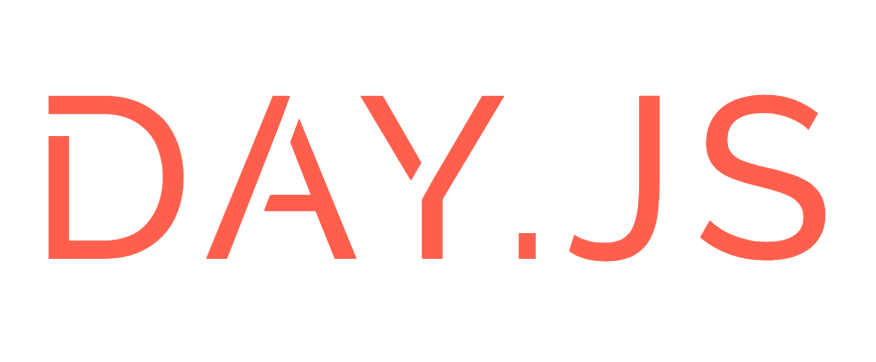English | 简体中文
Fast 2kB alternative to Moment.js with the same modern API
Day.js is a minimalist JavaScript library for modern browsers with a largely Moment.js-compatible API. If you use Moment.js, you already know how to use Day.js.
dayjs().startOf('month').add(1, 'day').set('year', 2018).format('YYYY-MM-DD HH:mm:ss');- 🕒 Familiar Moment.js API & patterns
- 💪 Immutable
- 🔥 Chainable
- 📦 2kb mini library
- 👫 All browsers support
You have multiple ways of getting Day.js:
- Via NPM:
npm install dayjs --savevar dayjs = require('dayjs');
dayjs().format();- Via CDN:
<!-- Latest compiled and minified JavaScript -->
<script src="https://unpkg.com/dayjs"></script>
<script>
dayjs().format();
</script>- Via download and self-hosting:
Just download the latest version of Day.js at https://unpkg.com/dayjs/dist/
Instead of modifying the native Date.prototype, Day.js creates a wrapper for the Date object, called Dayjs object.
Dayjs object is immutable, that is to say, all API operation will return a new Dayjs object.
API will always return a new Dayjs object if not specified.
Simply call dayjs() with one of the supported input types.
To get the current date and time, just call dayjs() with no parameters.
dayjs();Creating from a string matches ISO 8601 format.
dayjs(String);
dayjs('1995-12-25');Passing an integer value representing the number of milliseconds since the Unix Epoch (Jan 1 1970 12AM UTC).
dayjs(Number);
dayjs(1318781876406);Passing a pre-existing native Javascript Date object.
dayjs(Date);
dayjs(new Date(2018, 8, 18));All Dayjs are immutable. If you want a copy of the object, just call .clone().
Calling dayjs() on a Dayjs object will also clone it.
dayjs(Dayjs);
dayjs().clone();- returns a Boolean
Check whether the Dayjs object considers the date invalid.
dayjs().isValid();Get and set date.
- returns a Number
Get year.
dayjs().year();- returns a Number
Get month.
dayjs().month();- returns a Number
Get day of the month.
dayjs().date();- returns a Number
Get hour.
dayjs().hour();- returns a Number
Get minute.
dayjs().minute();- returns a Number
Get second.
dayjs().second();- returns a Number
Get millisecond.
dayjs().millisecond();Date setter. Units are case insensitive
dayjs().set((unit: String), (value: Int));
dayjs().set('month', 3); // April
dayjs().set('second', 30);Once you have a Dayjs object, you may want to manipulate it in some way like this:
dayjs()
.startOf('month')
.add(1, 'day')
.subtract(1, 'year');Returns a new Dayjs object by adding time.
dayjs().add((value: Number), (unit: String));
dayjs().add(7, 'day');Returns a new Dayjs object by subtracting time. exactly the same as dayjs#add.
dayjs().subtract((value: Number), (unit: String));
dayjs().subtract(7, 'year');Returns a new Dayjs object by by setting it to the start of a unit of time.
dayjs().startOf((unit: String));
dayjs().startOf('year');Returns a new Dayjs object by by setting it to the end of a unit of time.
dayjs().endOf((unit: String));
dayjs().endOf('month');Once parsing and manipulation are done, you need some way to display the Dayjs object.
- returns a String
Takes a string of tokens and replaces them with their corresponding date values.
dayjs().format(String);
dayjs().format(); // "2014-09-08T08:02:17-05:00" (ISO 8601, no fractional seconds)
dayjs().format('[YYYY] MM-DDTHH:mm:ssZ'); // "[2014] 09-08T08:02:17-05:00"List of all available formats:
| Format | Output | Description |
|---|---|---|
YY |
18 | Two digit year |
YYYY |
2018 | Four digit year |
M |
1-12 | The month, beginning at 1 |
MM |
01-12 | The month, with preceeding 0 |
MMM |
Jan-Dec | The abbreviated month name |
MMMM |
January-December | The full month name |
D |
1-31 | The day of the month |
DD |
01-31 | The day of the month, preceeding 0 |
d |
0-6 | The day of the week, with Sunday as 0 |
dddd |
Sunday-Saturday | The name of the day of the week |
H |
0-23 | The hour |
HH |
00-23 | The hour, with preceeding 0 |
m |
0-59 | The minute |
mm |
00-59 | The minute, with preceeding 0 |
s |
0-59 | The second |
ss |
00-59 | The second, with preceeding 0 |
Z |
+5:00 | The offset from UTC |
ZZ |
+0500 | The offset from UTC with preceeding 0 |
- returns a Number
Get the difference of two Dayjs object in milliseconds or other unit.
dayjs().diff(Dayjs, unit);
dayjs().diff(dayjs(), 'years'); // 0- returns a Number
Outputs the number of milliseconds since the Unix Epoch
dayjs().valueOf();- returns a Number
Outputs a Unix timestamp (the number of seconds since the Unix Epoch).
dayjs().unix();- returns a Number
Get the number of days in the current month.
dayjs().daysInMonth();- returns a Javascript
Dateobject
Get copy of the native Date object from Dayjs object.
dayjs().toDate();- returns a Array
Returns an array that mirrors the parameters from new Date().
dayjs().toArray(); //[2018, 8, 18, 00, 00, 00, 000];- returns a JSON String
Serializing an Dayjs to JSON, will return an ISO8601 string.
dayjs().toJSON(); //"2018-08-08T00:00:00.000Z"- returns a String
Formats a string to the ISO8601 standard.
dayjs().toISOString();- returns a Object
Returns an object with year, month ... millisecond.
dayjs().toObject(); // { years:2018, months:8, date:18, hours:0, minutes:0, seconds:0, milliseconds:0}- returns a String
dayjs().toString();- returns a Boolean
Check if a Dayjs object is before another Dayjs object.
dayjs().isBefore(Dayjs);
dayjs().isBefore(dayjs()); // false- returns a Boolean
Check if a Dayjs object is same as another Dayjs object.
dayjs().isSame(Dayjs);
dayjs().isSame(dayjs()); // true- returns a Boolean
Check if a Dayjs object is after another Dayjs object.
dayjs().isAfter(Dayjs);
dayjs().isAfter(dayjs()); // false- returns a Boolean
Check if a year is a leap year.
dayjs().isLeapYear();
dayjs('2000-01-01').isLeapYear(); // trueMIT






